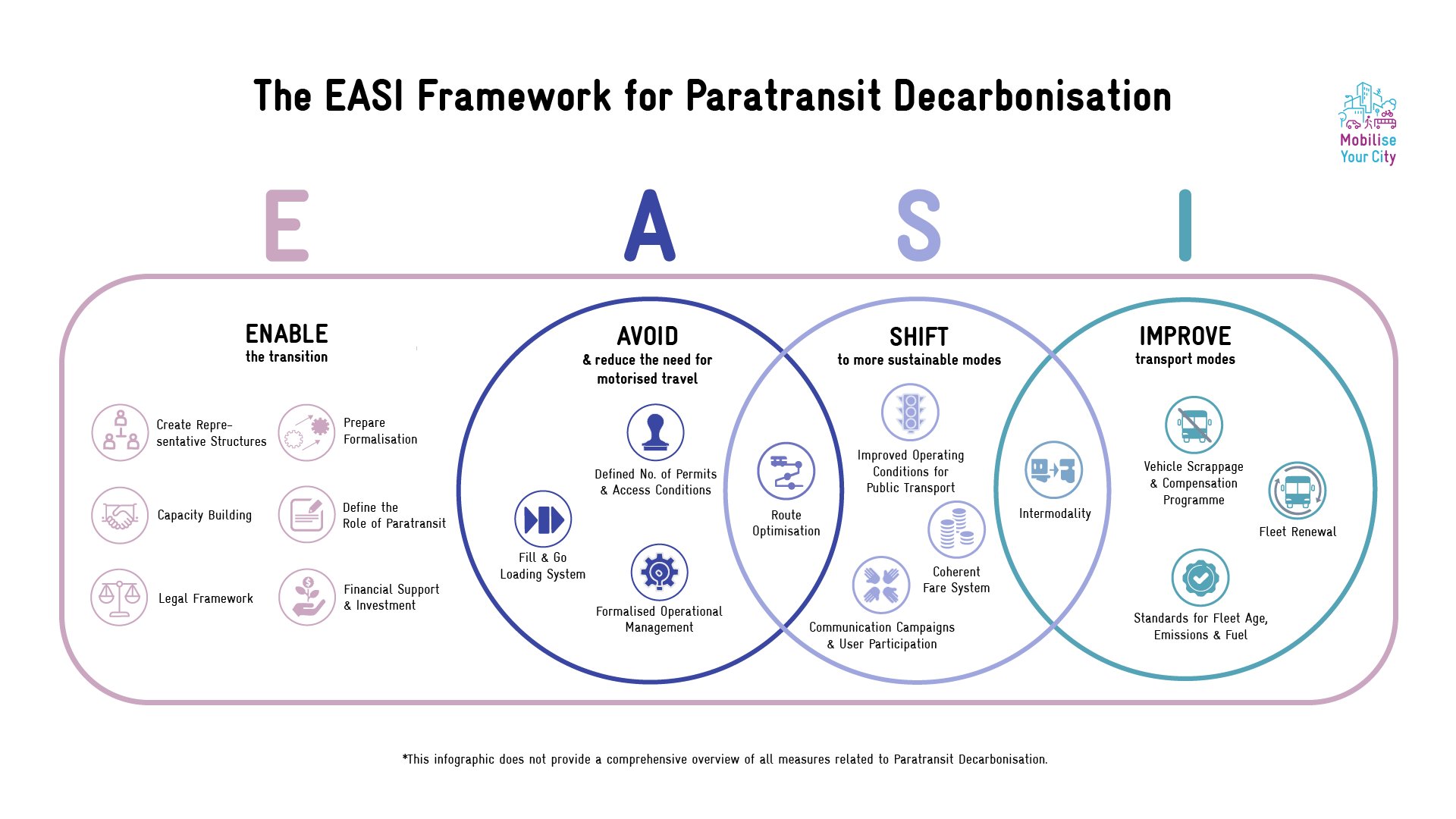Decarbonisation Beyond Electrification: A Holistic Approach to Sustainable Urban Mobility

Written by Angel Manuel Almendros Salerno
As the global spotlight shines on decarbonisation, electrification often takes the central stage. While transitioning to electric vehicles is essential for reducing emissions, it represents just one piece of a much larger puzzle. True decarbonisation requires a more comprehensive approach, addressing systemic inefficiencies and promoting modal shifts across all facets of urban mobility. This is particularly vital in the context of informal and semi-formal transport systems, often referred to as paratransit, functioning as the primary support for urban transport networks in many cities of the Global South.
The Role of Paratransit in Urban Mobility
Paratransit systems, including minibuses, shared taxis, and tuk-tuks, are indispensable in providing affordable and flexible transport to underserved populations. Paratransit accounts for a significant share of journeys in many cities, ranging from 12% in Cape Town to 40% in Bogotá and Yaoundé. Despite their importance, these systems often rely on outdated technologies and operate inefficiently, contributing disproportionately to greenhouse gas (GHG) emissions and local air pollution. This underscores the urgent need for transformative action to address their environmental impact while maintaining their critical role in urban mobility.
Why Electrification Alone Falls Short
Electrifying paratransit fleets offers some benefits, such as lower emissions and improved air quality, but relying solely on vehicle technology overlooks other critical issues. A holistic approach is essential to address the fragmented operations, inefficient routes, and lack of integration with broader urban transport networks that often characterise paratransit systems. Challenges such as operational inefficiencies (empty miles, overcapacity), and social inequities must also be tackled to ensure that decarbonisation efforts are inclusive, effective, and sustainable.
The EASI Framework: A Pathway to Holistic Decarbonisation
MobiliseYourCity advocates for the EASI (Enable, Avoid, Shift, Improve) Framework to address the multifaceted challenges of decarbonisation. This structured pathway enables cities to transform paratransit into sustainable, efficient networks.

- Enable: Build institutional foundations by formalising operations, integrating paratransit into urban planning, and fostering stakeholder collaboration.
- Avoid: Optimise routes and streamline operations to reduce unnecessary travel and fuel consumption.
- Shift: Align paratransit with public transit systems to encourage multimodal connectivity and reduce reliance on private vehicles.
- Improve: Upgrade vehicles and operational standards, ensuring direct emissions reductions alongside enhanced service quality.
The framework’s flexibility allows cities to prioritise actions based on their unique needs and resources.
Tools such as the MobiliseYourCity Paratransit Toolkit provide practical guidance for implementing the EASI Framework.
The Way Forward
Decarbonisation is not just about electrifying vehicles; it is about reimagining urban mobility systems to prioritise sustainability, equity, and efficiency. By adopting a holistic approach like the EASI Framework, cities can address the root causes of inefficiency and emissions in paratransit systems while fostering social and economic benefits.
Investing in decarbonisation beyond electrification is an investment in more inclusive, equitable, and resilient cities. With the right tools, strategies, and collaborations, we can create transport systems that serve both people and the planet.